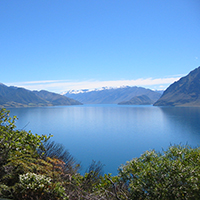The use of the term ‘limnology’ and its scientometrics consequences for limnologists

All claims expressed in this article are solely those of the authors and do not necessarily represent those of their affiliated organizations, or those of the publisher, the editors and the reviewers. Any product that may be evaluated in this article or claim that may be made by its manufacturer is not guaranteed or endorsed by the publisher.
Accepted: 27 July 2021
Authors
Jargon is the specialised vocabulary of any science: it allows the creation of new terms to define concepts and it removes ambiguity from scientific communication. Yet, it may also hinder understanding for a broader audience. Given that the Journal of Limnology has jargon in its title, we here investigate the impact of the term ‘limnology’ on the way limnologists work, publish their research, and attract the interest of other scientists. We do so by comparing scientometric features of papers published from 1965 to 2020 that used the term ‘limnology’ against papers on similar topics but that used the term ‘lake ecology’ or ‘hydrobiology’, and to the marine counterpart of papers that used the term ‘oceanography’. We found that papers using the term limnology score worse than those of the other topics in terms of both publication output and scientific impact. Limnologists may need to use other terms in addition to ‘limnology’ to reach a broader scientific audience.
Finnish Museum of Natural History (LUOMUS), University of Helsinki, Finland
How to Cite

This work is licensed under a Creative Commons Attribution-NonCommercial 4.0 International License.






